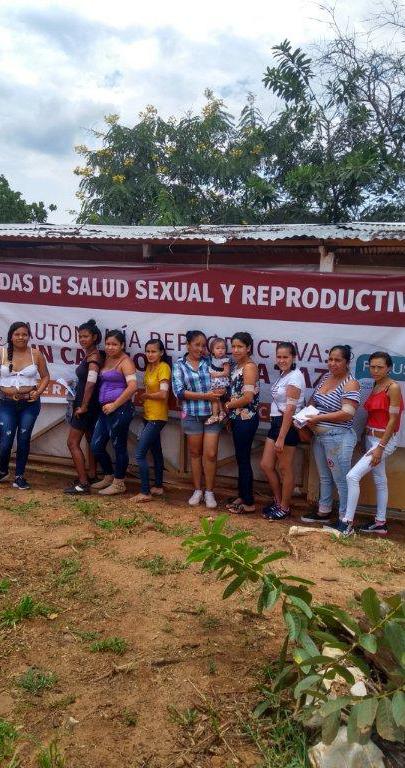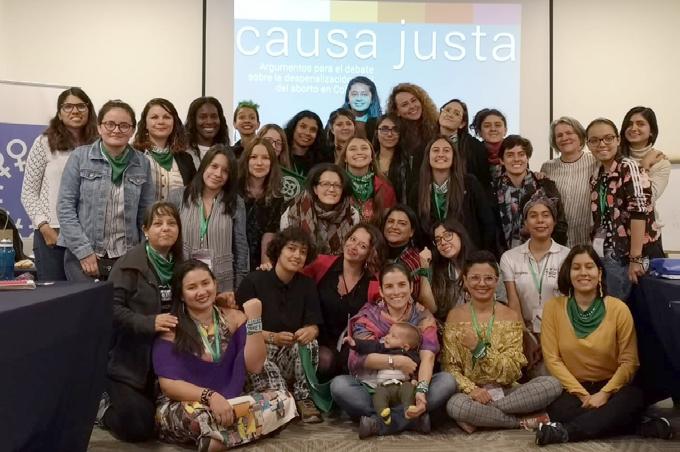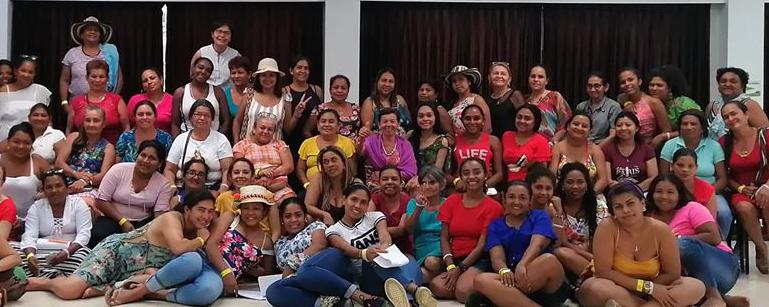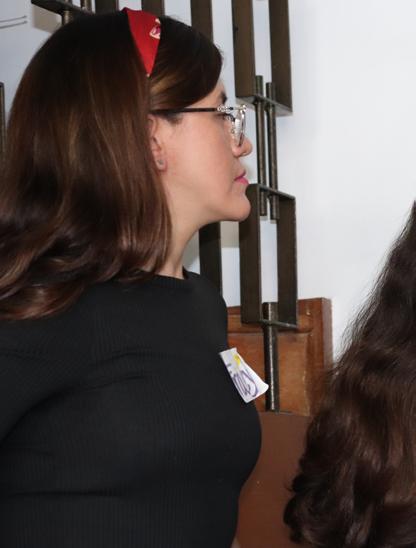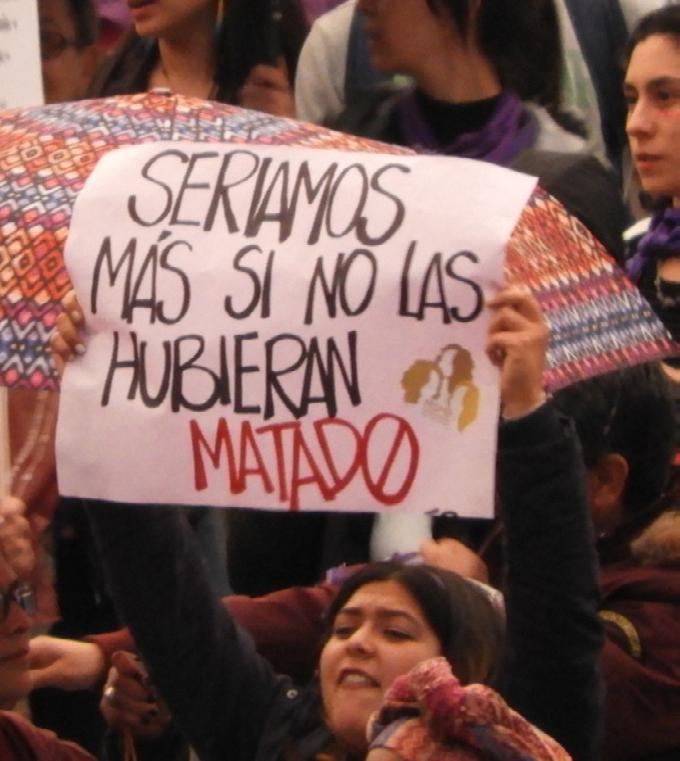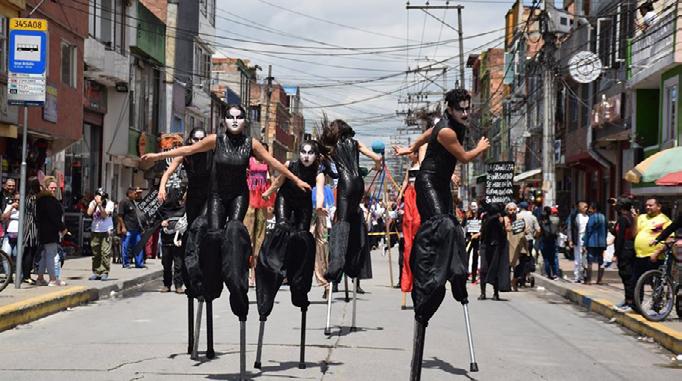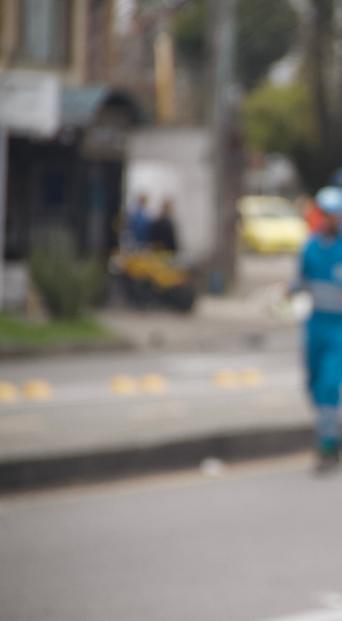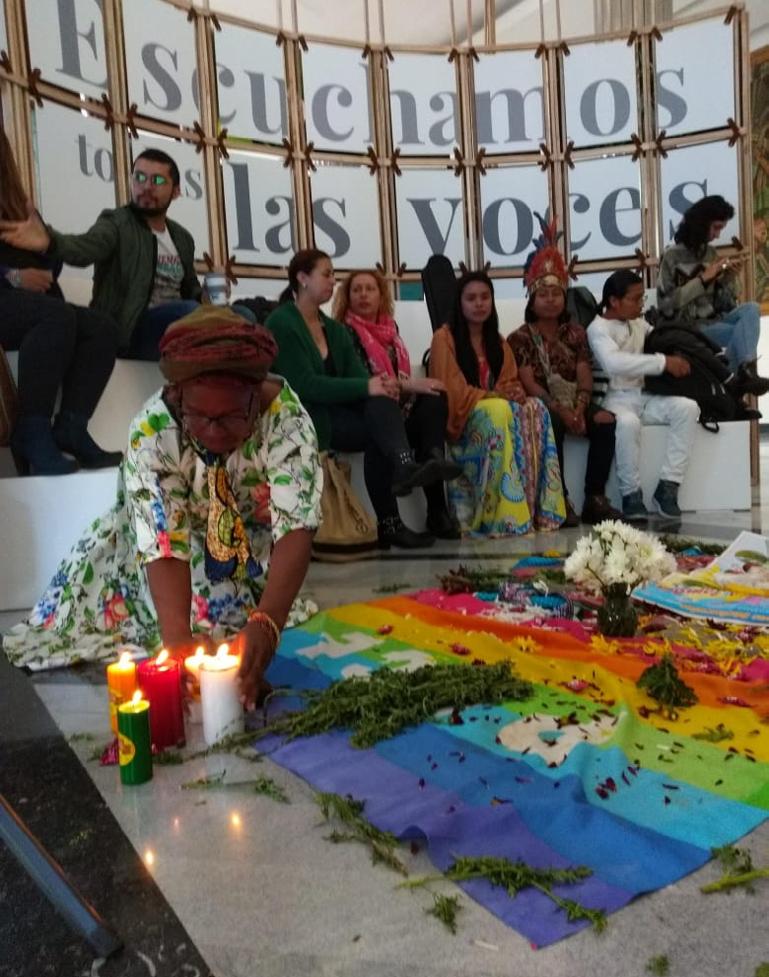
5 minute read
Women in the system for justice, truth, reparation, and guarantees for non-repetition
Women meet with the SIVJRNR to learn about the roadmap to to access truth, justice, reparation, and non-repetition from a gender perspective. he Yira Castro Legal Corporation –CJYC, Corporación Jurídica Yira Castro– is a non-profit, nongovernmental, human rights organization that was founded in 2001. Its primary objective is to defend and demand the respect and guarantee of human rights for vulnerable populations. To do this, CJYC uses legal and political actions, on a national and international level, to achieve higher levels of social justice in Colombia. CJYC is a FOKUS partner in the Women Peace and Security Program, making it possible to implement a cross-cutting gender perspective in the work areas of training, advocacy, and litigation in relation to the defense of human rights, land, and territory, among others. These actions are carried out in the accompanied regions and the capital. In this context, CJYC held a “Regional Gathering on Roadmaps for Women’s Participation in the SIVJRNR with a Gender Perspective” on 18 September, 2019 in Bogotá. This gathering benefited from the presence of women from the departments of Meta, Sucre, Nariño, Cundinamarca, Magdalena, and Cauca, as well as delegates from the Special Jurisdiction for Peace –JEP, the Commission for the Clarification of Truth –CEV, and the Search Unit for People Allegedly Disappeared –UBPD. The gathering was particularly important due to the participation of women victims of the armed conflict who have strengthened their community leadership, women heads of household, women who were victims and continue to resist, and women who are accompanied by CJYC, thus generating a space to share experiences and wisdom on an issue that is as little known in the country and “post conflict” as is a gender perspective in violent contexts and peace-building. As the FOKUS program “promotes the protection of women and girls in conflicts and guarantees them a role in peace negotiations and reconstruction after an armed conflict,” 1 the Regional Gathering also sought to vindicate these women as subjects of rights and political protagonists who, through their struggles and experiences, contribute to initiatives that increase dignity, resilience, and peacebuilding in their regions. The Regional Gathering was divided into two sessions. The first was dedicated to integration among women from different regions where patterns of physical, sexual, and psychological violence were identified and contribute to the violation of woman’s rights in the armed conflict. Some women who have ended up as the sole individuals responsible 1 https://www.fokuskvinner.no/colombia/ mujeres-construyen-paz/ [Recovered 13 November 2019] TEXT: MARÍA PAULA ROA POLO, Head of Communications Corporación Jurídica Yira Castro T “They identified patters of physical, sexual, and psychological violence that contributed to the violation of women’s rights in the armed conflict.”
for their homes have confronted the difficult task of advancing the wellbeing of their households amid a misogynistic system that repeatedly tells them: “these are not tasks for a woman,” “a single woman cannot do that,” “women do not know about agricultural work,” “this is work for men,” “women who do not fix themselves up are ugly”; phrases that disregard women and reinforce the collective idea that a woman does not have the same capacities as a man, and even more so if it is agricultural work. These are views that are established in society and contribute to the oppression of and discrimination against women.
The women who participated in the gathering also shared the concern of not being taken into account in the Comprehensive System for Truth, Justice, Reparation, and NonRepetition – SIVJRNR, created by the Havana Agreement, as women who seek and build peace. They do not see how the System’s different entities guarantee their rights and provide them with tools to access the system.
The second part of the gathering sought to clarify the women’s doubts and discontent regarding the Comprehensive System. The
SIVJRNR’s three bodies (JEP, CEV, and UBPD), presented the eight thematic focuses of the gender perspective included in the Peace Agreement, and how to participate in each of the entities. Thanks to this space for the entities and victims, the women at the gathering were able to contribute to the participation roadmaps proposed by the entities for the increased inclusion of women in the SIVJRNR. The proposals are as follows:
• Permanently promote a reflection on the stigmatization of women. • Avoid statements, practices, or prejudices that reinforce gender stereotypes. • Take into account situations of disability or belonging to ethnic groups, as women are diverse. • The data bases created must take into account gender, sexual orientation, and gender identity. • The institutions must create methodologies that make it possible for them to travel to the regions, instead of the women having to travel to the entities’ offices, which are generally located in capital cities, because in many occasions it is difficult for the women to drop their obligations to travel to the cities. • For a humanitarian search to take
Regional Meeting PHOTO : Corporación Jurídica Yira Castro.
place, information must first be collected from other entities: the Attorney General’s Office, Forensic Medicine, the Human Rights Ombudsman’s Office, to avoid the repetition of prior declarations. • Adapt the spaces in the entities’ offices so that women can go with children or elderly individuals who are under their care. • Implement differentiated attention measures for men, women, boys and girls, and people with different sexual orientations or gender identities, among others. • Women are tired of dealing with institutions that do not fulfill their responsibilities by stating that they are “not the competent authority,” forcing them to go through bureaucratic proceedings in a variety of entities instead of providing coordinated and comprehensive services. Finally, it is important to highlight the importance of these kinds of spaces that seek to vindicate women’s role in the post-agreement society, recognizing their situation as victims of the Colombian armed conflict, but also their indispensable role in peacebuilding. These spaces are necessary to strengthen women’s rights and their recognition as political subjects in Colombian society. FM

